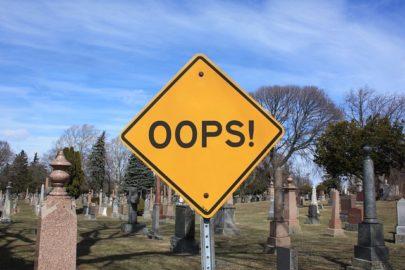Last Updated on October 12, 2025 by Michelle Ball
Language is important in special education. It is especially important when making legal arguments and demanding things for a student. Knowing this, there is one word which should be banned from a parent’s vocabulary, when advocating for special education services, supports, or placement: “best.”
This is the four letter word of student special education.

“Best” Is a Bad Word in Special Education
It does not cross the minds of most parents that certain language related to special education is somehow “bad.” Why should it be? How can a single word in the quest for appropriate student services cause a parent to fail?
It can.
The word which is the number one most awful, terrible word in special education does exist and should be avoided at all costs. This infamous word, is the word “BEST” (otherwise known as “B***”). Now, this may seem counterintuitive to most parents, but it is true.
Parents Want the Best for Their Kids
Parents believe that schools must provide special education students with the best education. A student ought to be placed where he has the best chance to succeed, right?
The student should be in the environment where they will go the furthest, shouldn’t they?
And a special education student should only be at the school which is the best, right?
Obviously, the student deserves the best, don’t they?

Unfortunately, the answer is NO. Special education students are not entitled to the best school environment, the best services, or anything “best” in our public schools.
Legal Standard Is Not the “Best”
I have been in an IEP meeting where an assessor for a parent said that their recommended placement was the “best” for a student. This immediately caused severe damage to the assessor’s opinions and conclusions which she was presenting.
I cringed, shrunk in my seat, and started to prepare my damage control.
Why?
Because no student is entitled to the “best” education, as no school district is obligated to maximize a special need student’s education or services.
As such, if a parent or assessor says this is the “best” placement so the student must have it, the placement will be quickly attacked by the school district. The “best” is not the legal standard for special education entitlements.
What Is the Legal Standard, If Not Best?
In special education, students are entitled to FAPE (Free and Appropriate Public Education). What FAPE is, is defined in statutes, regulations, and court interpretations of those rules.

The standard for a student receiving FAPE sometimes seems to be ever-evolving. The current standard for what constitutes FAPE (or what is appropriate) is the one which was set out in the Endrew F. case, where the United States Supreme Court unanimously agreed that minimal education progress was not enough.
Endrew F. Set the FAPE Standard and the “Best” Is Not Required
Endrew F. determined what type of placement can be considered FAPE. Students are not entitled to the “best,” but are entitled to make meaningful progress in their education.
The United States Department of Education (USDOE) has summarized the Endrew F. standard as:
The Court held that to meet its substantive obligation under the IDEA, a school must offer an IEP [Individualized Education Program] reasonably calculated to enable a child to make progress appropriate in light of the child’s circumstances. In clarifying the standard, the Court rejected the “merely more than de minimis” (i.e. more than trivial) standard applied by the Tenth Circuit. In determining the scope of FAPE, the Court reinforced the requirement that “every child should have the chance to meet challenging objectives.” (1) Footnote 1: 137 S.Ct. at 1000.
Due to this being the standard, parents need to request this standard be met: that students make meaningful progress appropriate to their circumstances, and can have challenging IEP objectives as per Endrew F.

Parents, advocates and assessors must be careful in how they refer to any placements or services they want and to couch demands in the applicable legal terms. Language is important in special education
What If Parents Do Demand the Best?
If a parent demands the “best” rather than FAPE be provided, they may not get it and need to do damage control. The request for “best” can be clarified and altered to reflect the Endrew F. standard.
An assessment should be recharacterized to communicate in the proper special education language. An attorney can try to reframe the matter as well. It is easiest, however, never to request the “best” in the first place.
So, parents, advocates and assessors beware, never use the four letter word “best” in your special education demands. Just adopt different language, that of FAPE, and you may just achieve your goals.
Michelle Ball is an attorney helping students with special education issues, across California. As a California education lawyer, she advocates across the state in San Diego, Lincoln, Solvang, Bakersfield, Chico, Citrus Heights, Placerville, and many other areas.
Originally written March 30, 2011

